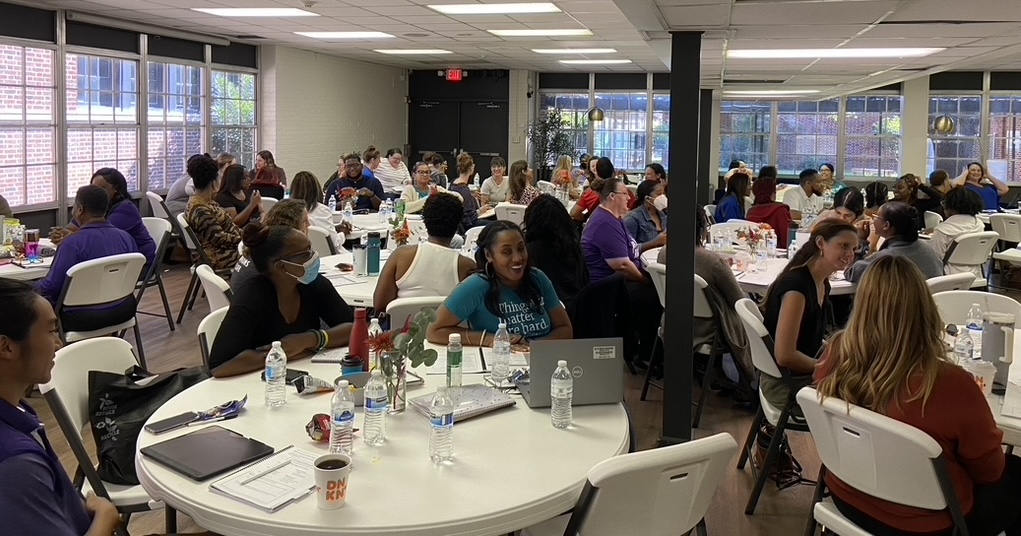
Why Trauma-Informed Training Makes A Difference
TBRI® is a framework with a large and growing community of both caregivers and professionals who praise its powerful capacity to change lives. But what exactly is TBRI®, and why is this training so impactful?
Here at The Riverside Project, our team has seen firsthand how effective TBRI® programs are for helping people understand and support the unique needs of children, youth, and adults who have experienced early trauma. In fact, we believe in this intervention so much that we host regular training sessions for individuals who want to learn the TBRI® framework.
Continue reading to learn more about how this framework can shift how you interpret and respond to challenging behaviors while also maintaining and even increasing connection with vulnerable children and youth in your life:
What is TBRI®?
TBRI® stands for Trust-Based Relational Intervention. This framework is designed to help adults provide attachment-based, trauma-informed care to children who have experienced adversity, early harm, toxic stress, and/or trauma.
TBRI® was developed by the Karyn Purvis Institute of Child Development at Texas Christian University. Based on years of attachment, sensory processing, and neuroscience research, TBRI® is used worldwide in homes, residential facilities, group homes, schools, camps, juvenile justice facilities, courts, faith communities, clinical practices, and more.
Children who experience complex trauma develop a complex set of needs that require specialized care. This truth has been proven time and time again—and TBRI® was created to address this challenging but crucial component of providing care for children who carry the wounds of their difficult histories with them.
Get Started: Trauma Training
Why is TBRI® Important?
You may have a number of tools already to care well for your children AND when you step into the role of caring for a child who has experienced trauma, you will likely discovery that you need some additional skills to meet that child’s needs.
Why?
Because when children undergo trauma of any kind—including the stress of being separated from their birth parents, living in a home where domestic violence or substance abuse is present, chronic poverty, inconsistent caregivers, etc.—they can display behavioral and emotional patterns that are difficult to understand, predict, and control.
When caregivers or professionals who work with vulnerable children encounter challenging behaviors, they often feel confused, overwhelmed, and unsure of how to properly meet the emotional and physical needs of the child while also maintaining safety and addressing challenging behaviors.
This is where TBRI® training comes in.
TBRI® helps caregivers understand that emotional shutdowns or outbursts should not be taken personally or seen as an intentional choice on the part of the child. Children and youth that display this type of behavior is often due to a lack of capacity, not a result of willful disobedience.
Instead, TBRI® tells us that a lack of security and safety in childhood makes it hard for children to trust the adults around them and cope with stress in a healthy way. This leads to the development of maladaptive survival strategies—which can manifest in the form of these confusing and concerning behaviors.
Training in TBRI® helps the adult be attuned to the emotional needs of a child so you can provide safety and connection. From this secure connection, you can not only meet their needs in moments of duress but also model appropriate behaviors to replace challenging ones with. The framework accomplishes this through a set of 3 Principles:
Connecting – Establishing an environment where children feel safe to attach, trust, and heal.
Empowering – Addressing the unique physical sensory needs of the children in your care.
Correcting – Disarming fear-based behaviors and redirecting behaviors in a more positive direction.
Why Trust-Based Relationships Matter
The antidote to a past marked by neglect is a consistent, loving, and stable adult. Trauma that happens in relationship must be healed in relationship. We may not be able to protect children from the past experiences that have caused their existing trauma, but we can help them to cope and heal today.
Taking the time to learn and implement TBRI® is a powerful way to show a child you are willing to listen to and honor their voice, which will allow you to meet their needs. It’s a commitment to caring for them in the way the needed in their past.
With the principles laid out by TBRI® in mind, caregivers can interpret and address the behaviors of vulnerable children in a healthier, more productive manner.
For example, an adult may feel frustrated if a child gets emotional and refuses to follow directions as simple as going to their room or eating a meal. But a TBRI®-trained caregiver will understand that this child may be desperately seeking to maintain the sense of control that their life has been lacking.
Alternatively, a parent may feel hurt if a child doesn’t like to be shown love through physical contact like touches or hugs. Instead of taking this as a sign that the child dislikes them, a parent trained in TBRI® can recognize that early traumatic experiences may be at the root of this reaction.
Put simply—healing from past trauma happens in the context of loving and stable relationships. That’s why the concepts emphasized by TBRI® are so vital for helping children and adolescents involved in the child welfare system truly thrive.
Trauma-Informed Training in Houston Helps You Help Others
No matter where you find your place along the River, TBRI® training is a wonderful resource. Equipped with the knowledge and strategies this framework teaches, you can become a positive, safe, and trusted influence in the lives of children who need additional support.
We encourage you to consider taking advantage of TBRI® training even if you don’t plan on becoming a primary caregiver.
For example, if you’re a school teacher, learning the principles of TBRI® can equip you with the knowledge you need to provide special support for the vulnerable children who may pass through your classroom.
If you work or volunteer in the foster care community, TBRI® can teach you how to communicate more effectively with the children you serve. And of course, if you are a foster or adoptive parent (or want to be one in the future), TBRI® is a program that can completely transform your ability to empower, connect with, and correct the children or teens in your care.
Through our Harris County TBRI® Collaborative, we offer 4-part training sessions that cover the entire TBRI® for Caregivers curriculum. We started this program because we believe that it’s vital for professionals and caregivers in the Houston area to be able to learn the principles TBRI® teaches from experienced practitioners.
Watch this short video on the Harris County TBRI® Collaborative to see how professionals and caregivers in the Houston area can access helpful tools and principles to help them empower, correct, and connect with the children in their care:
Learn more about these sessions and register for a course schedule that works for you on our website so you can gain the skills you need to fulfill your role along the River more effectively—wherever that role may be.
And as always, if you have any questions about our resources or your place along the River, don’t hesitate to reach out.


